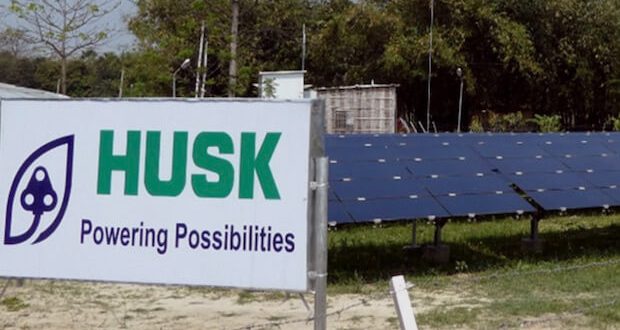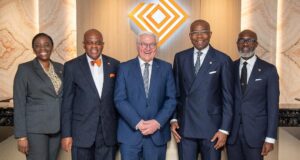Energy services company Husk Power Systems has secured funding from Germany’s development finance institution DEG to build 8 new community solar microgrids in Nigeria, and to support expansion of the company’s India operations.
DEG allocated the funds from its Up-Scaling Program, which is co-financed by the German Federal Ministry for Economic Cooperation and Development. With a portfolio of around €9.2 billion DEG, a subsidiary of KfW is one of the world’s largest private-sector development financiers.
The 5-year loan of $749,000 follows Husk successfully closing debt totalling $10.3 million from EDFI-ElectriFI and IREDA in 2022 to build more than 200 microgrids in India. The DEG financing is the first debt raised by Husk for its business in Nigeria, where the company currently has 12 operational microgrids, and a target of building 500 by 2026.
The 8 microgrids in Nigeria will connect more than 500 residential and commercial customers, reduce the number of diesel generators in use by 400, while creating about 40 new direct local jobs.
Referring to the financing, Petra Kotte, Head of Banking and German Business Division, DEG, said: “Husk is exactly the type of company we’re looking for at the Up-Scaling Program, which supports innovative greentech business models in emerging markets that demonstrate high development impact and a significant reduction of carbon emissions.”
“Access to affordable debt is critical to scaling solar microgrids in Nigeria, home to 90 million people living without access to electricity,” said Manoj Sinha,Co-Founde rand CEO, Husk. “This financing provides Husk with a solid foundation for unlocking additional debt, including local currency debt, this year and beyond.”
Microgrids are used by small residential or commercial consumers while mini-grids are large configurations.
Energy Progress Report 2022 shows more than 733 million people remain without basic access. Off-grid and decentralised renewable energy systems are emerging as the go-to for facilitating energy access and resilience in Sub-Saharan Africa and South Asia where the bulk of the world’s unelectrified citizens find themselves.
 Financial Energy Review
Financial Energy Review





